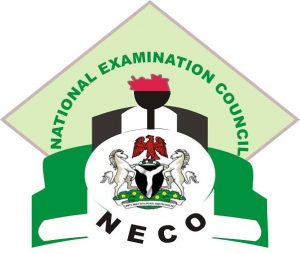NECO FINANCIAL ACCOUNTING 2023 Verified Essay and Objective Answers
Get Free Live 2023 NECO FINANCIAL ACCOUNTING Questions and Answers for Private Candidates Free of Charge | NECO June/July Free FINANCIAL ACCOUNTING Questions and Answers (Essay & OBJ) EXPO Room
NECO FINANCIAL ACCOUNTING Theory and Objective Answers (100%legit) FINANCIAL ACCOUNTING Essay verified Free (Expo) for National Examination Council. NECO FINANCIAL ACCOUNTING Questions For you to have good NECO result in FINANCIAL ACCOUNTING as well as repeated questions for free in this post.

NECO GCE June/July 2023 FREE FINANCIAL ACCOUNTING QUESTION AND ANSWER ROOM
NECO FINANCIAL ACCOUNTING OBJ
*FINANCIAL ACCOUNTING THEORY ANSWERS*
“`SECTION A; ANSWER TWO(2) QUESTIONS ONLY“`
(1a)
A bank reconciliation statement is a financial document that compares the balance of a company’s cash book (or general ledger) with the balance shown on its bank statement. This statement is used to identify and rectify any discrepancies or differences between the two balances. It helps ensure that the financial records maintained by the company accurately reflect its financial transactions and the actual bank account activity.
(1b)
(i) Outstanding Checks: These are checks that the company has issued but haven’t yet cleared the bank. Thus, they have been deducted from the company’s cash book but not from the bank statement.
(ii) Deposits in Transit: These are deposits made by the company that haven’t yet been credited to the bank account. They are recorded in the company’s cash book but are not yet reflected in the bank statement.
(iii) Bank Charges and Fees: The bank might deduct various charges and fees for services provided. These deductions might not be immediately reflected in the company’s cash book, causing a discrepancy.
(iv) Errors: Mistakes in recording transactions, such as incorrectly entering amounts, duplicating entries, or entering transactions in the wrong accounts, can lead to differences between the two balances.
(v) Interest and Dividends: The bank might credit the company’s account with interest earned or dividends received. If these credits are not recorded in the company’s cash book, a difference can arise.
========================
(2)
(i) Error of Principle:
An error of principle, also known as an error of fundamental character, occurs when a transaction is recorded in a way that violates the fundamental principles of accounting. This could involve misclassification of an expense as a revenue item or the use of an incorrect accounting treatment. For example, recording personal expenses as business expenses would be an error of principle.
(ii) Error of Compensation:
An error of compensation, also referred to as an offsetting error, happens when an incorrect entry is made, but the error is offset by another incorrect entry. Essentially, one mistake is canceled out by another mistake. This can result in the financial statements appearing correct even though there are errors in the underlying transactions.
(iii) Error of Omission:
An error of omission occurs when a transaction is completely left out or not recorded in the accounting books. This can happen accidentally or deliberately. Omissions can lead to inaccurate financial statements and misrepresentation of the financial position of a business.
(iv) Error of Commission:
An error of commission occurs when an entry is made in the accounting records, but it’s the wrong entry. This could involve using the wrong amount, account, or transaction details. For example, recording a payment to the wrong vendor would be an error of commission.
(v) Error of Complete Reversal of Entries:
This type of error involves transposing entire entries, essentially switching the debits and credits between two accounts. For example, if a debit entry of $500 and a credit entry of $300 were supposed to be recorded, but they are reversed so that the $500 is credited and the $300 is debited, this would be an error of complete reversal of entries. This can lead to significant distortions in financial records and financial statements.
========================
(3a)
(i) Donations and Grants: Nonprofits often rely on financial support from individuals, corporations, foundations, and government agencies. These contributions can be in the form of one-time donations, recurring donations, or grants specifically awarded for projects or initiatives that align with the organization’s mission.
(ii) Membership Fees: Many nonprofit organizations offer membership programs where individuals or entities can become members by paying a fee. In return, members might receive certain benefits such as exclusive content, event access, or the satisfaction of supporting a cause they believe in.
(iii) Fundraising Events: Nonprofits organize various fundraising events like charity galas, auctions, marathons, and community fairs. These events not only generate income through ticket sales or participation fees but also offer opportunities to engage with supporters and spread awareness about the organization’s mission.
(3b)
(i) Lack of Detail: Payment and receipt accounts provide a summarized view of financial transactions, which can lack the detailed information needed for comprehensive financial analysis.
(ii) Limited Analysis: These accounts often focus on cash flows, making it challenging to analyze non-cash items or assets that are not directly related to payments and receipts.
(iii) Timing Differences: Transactions might be recorded based on the timing of payments or receipts, leading to a mismatch between when an expense or income is recognized and when it actually occurred.
(iv) Exclusion of Accruals: Payment and receipt accounts don’t typically include accruals, which means that some expenses and incomes might not be accurately represented, potentially distorting the organization’s financial position.
(v) Lack of Future Projection: These accounts are historical in nature and don’t provide insights into future financial trends or projections, limiting their usefulness for strategic financial planning.
(3c)
(i) Taxation: One of the primary sources of revenue for the federal government is through taxation. This includes income taxes, corporate taxes, sales taxes, excise taxes, and other forms of levies imposed on individuals, businesses, and goods/services.
(ii) Borrowing: Governments often borrow money by issuing bonds and securities. Investors, including individuals, institutions, and foreign governments, purchase these bonds, providing the government with immediate funds. The government agrees to repay the borrowed amount with interest over a specified period.
========================
(4a)
(i) Source Documents:
Source documents are original records that provide evidence of a transaction or an event in accounting. These documents serve as the foundation for financial transactions and are essential for maintaining accurate and reliable financial records. Examples of source documents include invoices, receipts, purchase orders, bank statements, contracts, and payroll records. They offer a trail of evidence that supports the entries made in the accounting system, ensuring transparency and traceability of financial transactions.
(ii) Debit Note:
A debit note is a document used in accounting to inform a customer that they owe additional payment to a business. It is issued by a seller to their customer when there is an increase in the amount owed, usually due to goods being returned, pricing discrepancies, or other adjustments. The debit note serves as a formal request for the customer to pay the outstanding amount, and it often includes details about the reason for the increased charge.
(iii) Prime Entry:
Prime entry, also known as “original entry,” refers to the practice of recording financial transactions directly into the accounting system as they occur. This involves entering transaction details into the appropriate accounts in the general ledger or subsidiary ledgers without the need for intermediate steps like journal entries. Prime entry reduces the risk of errors and enhances the accuracy of financial data.
(4b)
(i) Purpose: The purpose of government accounting is to track and report on the financial activities and performance of government organizations including the allocation and utilization of public funds While Private sector accounting on the other hand focuses on providing financial information to stakeholders like investors shareholders and creditors with the aim of facilitating business decision-making profit maximization and assessing the organization’s financial health.
(ii) Accountability: Government accounting is primarily focused on ensuring transparency and accountability in the use of public funds with a greater emphasis on compliance with legal and regulatory requirements. In contrast private sector accounting is more oriented towards providing reliable and relevant financial information for internal and external stakeholders with a focus on generating profits and increasing the value of the organization.
(4c)
(i) Budgeting and Financial Analysis
(ii) Auditing and Assurance
========================
Keep refreshing the page for FINANCIAL ACCOUNTING NECO GCE questions and answers
Answers coming inform of pictures..
Answer loading………..Soon…..
Join this telegram group for updates
🎵 Want Latest Songs? Click HERE
632 Views | No Responses
CLICK TO DROP YOUR COMMENT
Related Posts

NECO GCE Economic 2023 Verified Essay and Objective Answers

NECO CHEMISTRY 2023 Verified Essay and Objective Answers

NECO AGRICULTURAL SCIENCE 2023 Verified Essay and Objective Answers

NECO LITERATURE 2023 Verified Essay and Objective Answers





